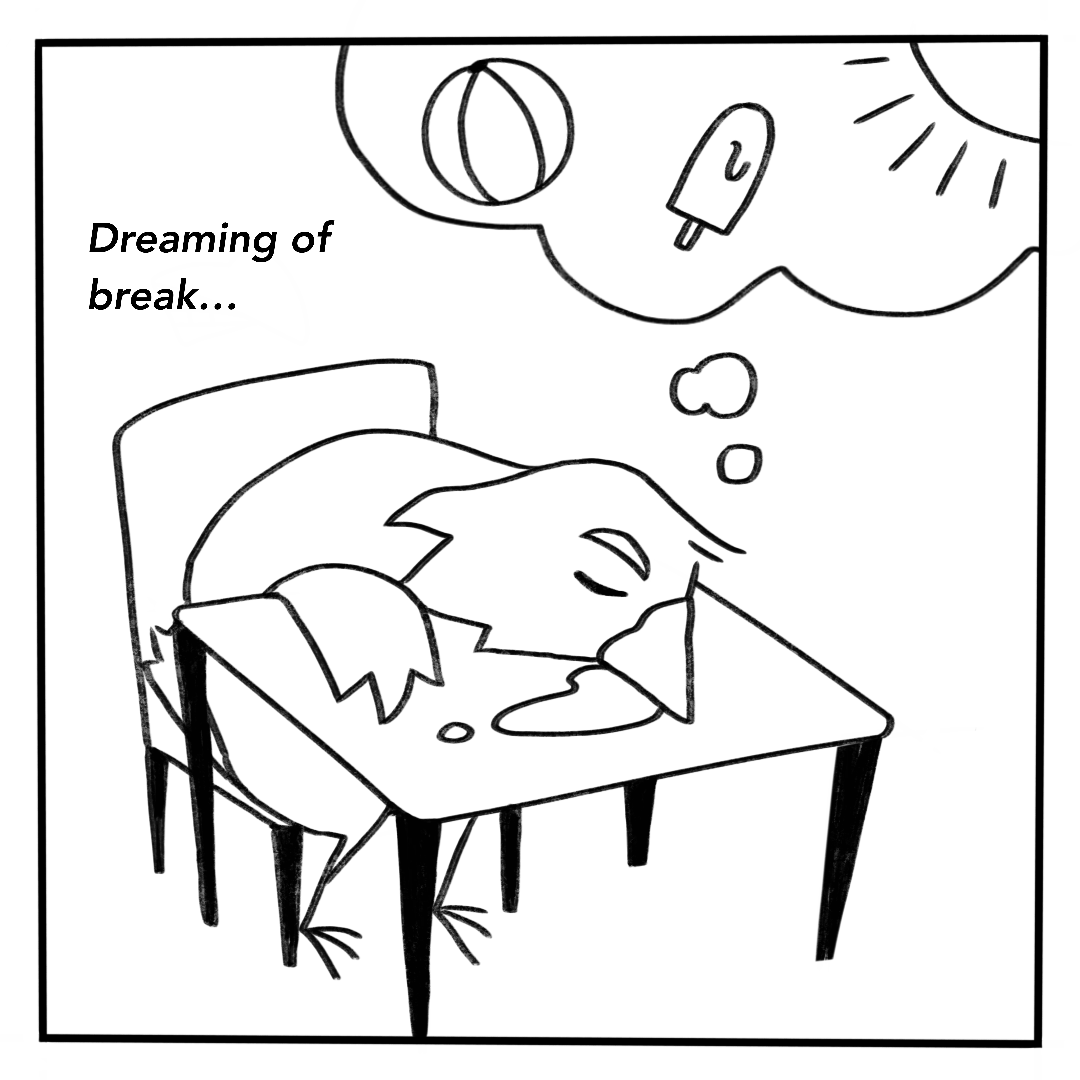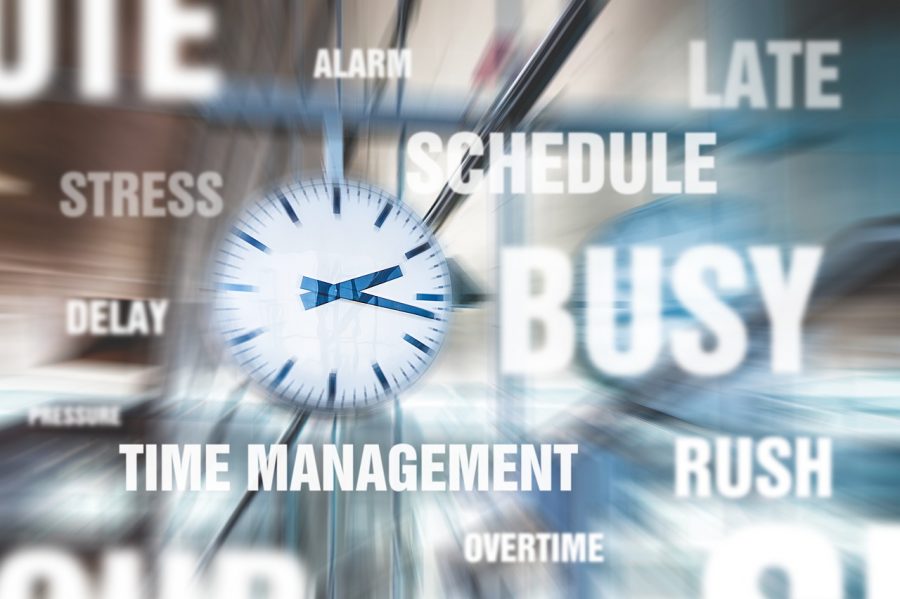Early start time: real life preparation or harmful to student health?
February 2, 2018
Sunny Park wakes up at 6:15, and gets ready for the day. She leaves the house at 7:00, having barely eaten breakfast and sustaining herself entirely on coffee before getting in her car and driving off.
This sounds like a standard day for a career motivated person in the working world right? Except this isn’t a working adult, this is just one of many experiences from students at Hoffman Estates High School.
“I’m always sleep deprived and often too tired to focus and retain and information in class,” said Park.
This schedule is highly punishing on students who are already facing daunting levels of commitment, needing to participate in AP classes, extracurricular activities, and sometimes a job in order to stay ahead. When students with later start times were interviewed, however, a different story emerged.
“I feel my school’s start time is a little early, (with classes starting at 8:15 and first bell at 8:10) but that’s mainly my personal situation with waking up early to get to the bus,” said Alex Guban, a student at Conant High School with a school start time of 8:15.
This current schedule is severely punishing students, by forcing them to learn while completely miserable and exhausted on a daily basis, with students consistently failing to meet the minimum recommended amount of sleep by the National Sleep Foundation of 9 ¼ hours each night.
“I get about 6 to 7 hours of sleep on a school night,” said Park. But when students with later start times are interviewed, things are different.
“I usually get around 7 hours [of sleep] each night, but sometimes as many as 9 hours,” said Guban. Guban said that on days when he doesn’t have to stay up late working on AP coursework, he is able to go to bed earlier, and feels his cognitive functions are significantly improved the next morning.
This is the benefit of later school start times. Even just 45 minutes later in Guban’s case has provided significantly more options for better preparing himself for the school day.
However this is not just a benefit to the students, as providing better sleep to students can have widespread effects in a community.
By pushing back school start times, taxpayer money is put to much better use, as students are learning much more effectively from the same teachers, school, and curriculum, as well as reducing cases of teen driving accidents, and overall better decision making. This will cause a significant change in a community, as high schoolers make up a noticeable portion of said community, and changes on them will be very noticeable.
According to the National Sleep Foundation, schools start as early as 7:00 AM across the country, and this leads to a laundry list of very serious repercussions. The most serious of which are loss of cognitive functions, inability to cope with stress, very dangerous drowsy driving, as well as emotional and behavioral problems such as depression and poor impulse control, which may lead to self-harm and drug/alcohol usage, and poor athletic performance.
These issues can be very harmful to a community, and effectively resolving them is the only way to ensure these students are fully prepared for the future.
But like with any issue, there are two sides to every argument. Some students and staff have issues with the pushing back school start times and would prefer it remain the same.
“Sleep doesn’t really affect my performance at school, because it’s really easy to take a power nap and ‘reset,’” said Akira Aguila, a senior at HEHS.
“My current sleep affects my learning because when I don’t get at least 6-7 amount of sleep, I tend to sleep in class most of the day,” Said Jacob Spitz, senior.
From the polar opposite accounts of Aguila and Spitz, it is clear that the issue of student sleep needs is not a one size fits all issue.
Some students prefer the current start time in their own daily routine, for example, Aguila uses the weight room before school in order to get energized for the day, if school is pushed back an hour, they would like the weight room and the rest of the gym to remain open at the same time, so they can continue with their schedule as normal. This allows for a longer workout on days where they don’t have gym, or can’t use a certain room in their classes, while students such as Spitz can sleep in, allowing both kinds of students to prepare for the day in the way that best suits them.
Like any controversial issue, school start times have many different backers, and opposers of an unending number of intensities. So long as both sides are heard in the argument, this issue appears to be quickly coming to a beneficial conclusion for parents, students, and staff.


















